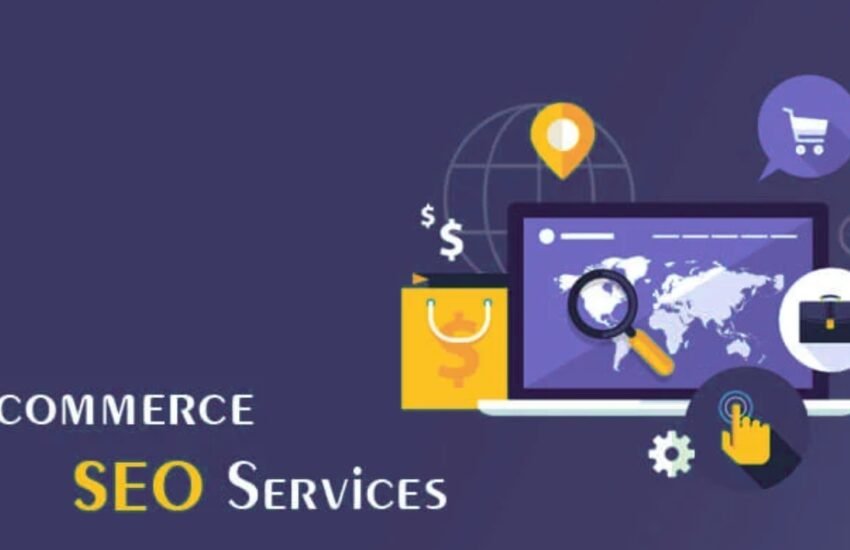In today’s fiercely competitive digital marketplace, ecommerce SEO services have become indispensable for online retailers striving to attract and convert customers. With millions of online stores vying for consumer attention, simply having a great product is no longer enough. To stand out, ecommerce businesses must leverage powerful SEO strategies that improve search engine visibility, drive targeted traffic, and ultimately boost sales. In this blog, we will comprehensively explore ecommerce SEO services, uncover their critical components, and demonstrate why investing in them can make or break your online store’s success.
What Are Ecommerce SEO Services?
At its core, ecommerce SEO services encompass a range of strategies and tactics designed to optimize an online store’s website so it ranks higher on search engines like Google. Unlike traditional SEO, ecommerce SEO focuses specifically on improving product pages, category pages, site architecture, and technical elements that influence search rankings and user experience. This includes keyword research targeted to buyer intent, optimizing product descriptions, enhancing site speed, and implementing schema markup, among others.
As the internet becomes increasingly saturated with ecommerce platforms, the importance of specialized SEO services grows exponentially. According to recent research published on Google Scholar, websites optimized for ecommerce SEO have a significantly higher chance of converting visitors into paying customers due to better relevance and usability.
The Importance of Ecommerce SEO for Online Stores
For any ecommerce business, visibility is the gateway to success. If your website isn’t found by potential customers during their search journey, your chances of making sales diminish drastically. This is where ecommerce SEO services step in — by ensuring your online store appears prominently when shoppers search for relevant products or services.
Moreover, ecommerce SEO is not just about rankings. It focuses on enhancing the entire user experience, which reduces bounce rates and increases time spent on your site. When shoppers find what they need quickly and effortlessly, they are more likely to trust your brand and complete purchases. As Neil Patel, a renowned digital marketing expert, once said, “SEO is not about gaming the system anymore; it’s about learning how to play by the rules and provide value to users.”
Key Components of Ecommerce SEO Services
To understand ecommerce SEO fully, it is essential to break down the core components that professional SEO agencies focus on when optimizing your online store.
Keyword Research and Optimization
Keyword research remains the foundation of any successful ecommerce SEO campaign. However, in the ecommerce context, it’s crucial to focus on keywords with strong buyer intent—those potential customers who are closer to making a purchase. This includes long-tail keywords like “best running shoes for flat feet” rather than generic terms such as “shoes.” Professional ecommerce SEO services use sophisticated tools to identify keywords that balance search volume with competitiveness, ensuring maximum ROI.
Optimizing product titles, descriptions, and metadata with these keywords helps search engines understand what each page is about, increasing the likelihood of ranking for relevant queries.
On-Page SEO for Product and Category Pages
Every product and category page must be carefully optimized to rank well. This involves crafting unique and compelling product descriptions that are both informative and keyword-rich. Duplicate content can be a significant issue in ecommerce, so creating original content for each product is vital.
Besides content, on-page SEO includes optimizing images with alt text, improving URL structures to be SEO-friendly, and ensuring internal linking between related products and categories for better site navigation and crawlability.
Technical SEO
Technical SEO is often overlooked but is critical for ecommerce websites. It involves optimizing site speed, ensuring mobile-friendliness, fixing broken links, and implementing structured data markup (schema). These elements make it easier for search engines to crawl and index your site, ultimately improving rankings.
For ecommerce stores, site speed is particularly important because slow-loading pages lead to high bounce rates and lost sales. Studies confirm that even a one-second delay in page load time can reduce conversions by up to 7%.
Link Building and Off-Page SEO
Beyond on-site improvements, ecommerce SEO services also include link building strategies to increase the authority of your website. High-quality backlinks from reputable sites signal to search engines that your store is trustworthy and relevant. This can be achieved through guest blogging, influencer partnerships, and outreach campaigns.
Social media signals and online reviews also contribute to your off-page SEO, influencing local search rankings and overall brand reputation.
How Ecommerce SEO Services Drive Business Growth
Implementing comprehensive ecommerce SEO services has a tangible impact on a business’s bottom line. First, it boosts organic traffic, which is often the most cost-effective and sustainable source of visitors. Unlike paid ads, SEO efforts compound over time, providing lasting results without ongoing expenses.
Second, SEO improves the quality of traffic by targeting shoppers with high purchase intent. This means higher conversion rates and better return on investment. Additionally, optimized ecommerce sites deliver superior user experiences, fostering brand loyalty and repeat purchases.
Furthermore, ecommerce SEO services provide valuable insights through analytics, allowing businesses to continuously refine their strategies based on data, competitor analysis, and consumer behavior patterns.
The Role of Content Marketing in Ecommerce SEO
Content marketing and SEO go hand-in-hand for ecommerce success. High-quality blogs, buying guides, and how-to videos related to your products help attract, educate, and engage potential customers.
For example, a store selling kitchen appliances could publish a blog on “10 Essential Kitchen Gadgets for Home Chefs,” incorporating relevant keywords and links to product pages. This not only drives traffic but also establishes your brand as an authority, which builds trust.
Moreover, content marketing enhances keyword coverage by targeting related search queries and answering common questions, expanding your site’s reach beyond product pages alone.
Expert Insight on Ecommerce SEO
To put it succinctly, Rand Fishkin, founder of Moz and SparkToro, emphasizes the evolving nature of SEO:
“Ecommerce SEO isn’t about shortcuts or tricks. It’s about building a site that customers love and search engines trust — combining technical expertise, content, and user experience seamlessly.”
His statement underlines the fact that successful ecommerce SEO requires a balanced and ethical approach, aligning with Google’s E-E-A-T (Experience, Expertise, Authoritativeness, and Trustworthiness) guidelines.
Final Thoughts: Why Investing in Ecommerce SEO Services is Essential
In conclusion, ecommerce SEO services are no longer optional but a necessity for any online store seeking sustainable growth. By leveraging keyword research, on-page optimization, technical SEO, link building, and content marketing, ecommerce businesses can significantly improve their search engine rankings, attract qualified traffic, and boost conversions.
Moreover, adhering to Google’s E-E-A-T principles ensures your website not only ranks well but also earns the trust and loyalty of customers. As the digital landscape continues to evolve, partnering with experienced ecommerce SEO professionals will empower your brand to navigate changes confidently and maintain a competitive edge.
Whether you are launching a new online store or looking to scale your existing business, investing in ecommerce SEO services is one of the smartest decisions you can make to future-proof your success.
you may also read
Guest Post Guidelines: Six Secrets You Must Know



